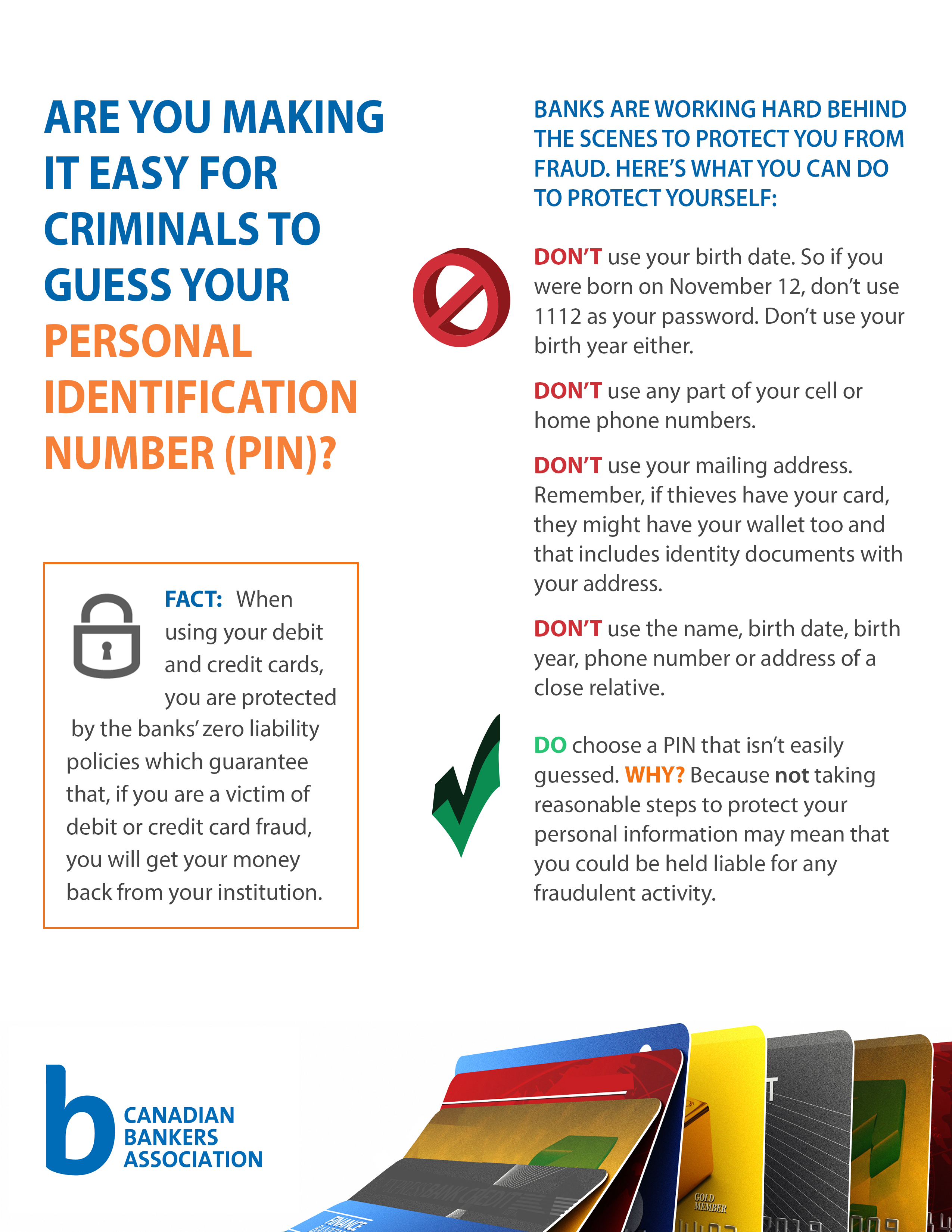Article
Preventing hackers from accessing your bank account is a partnership. While your bank has extensive security measures in place to protect you from fraud, there are also important steps you should take like choosing secure Personal Identification Numbers (PINs) and unique passwords. This is a requirement set out in your banking agreement and if you’ve taken the appropriate steps, you’ll be protected from fraud losses by your bank’s zero liability policy.
The top 10 most-used passwords
Choosing a unique password for your online accounts is important. Each bank has its own requirements about choosing secure passwords, so it’s best to check with your online access agreement, account agreement or credit cardholder agreements, but there are some general guidelines to keep in mind.
Use a unique password – check out the list below of the 10 most-used passwords for Canada in 2023. If your password is on this list, it’s time to think about changing it (here’s the full list of the top 200 worst passwords according to internet security firm NordPass):
- 123456
- admin
- password
- 54321
- 12345678
- 123456789
- alliance
- Canad1en5
- 12345
- 123four56
Avoid choosing something that would be easy to guess or information that could be obtained by others like your name or that of a close relative. Learn more about how to choose a unique password.
Use a passphrase instead of a password
Using a passphrase that you associate with that website makes it easier to remember. For example, if you’re logging into a photo sharing site, the phrase could relate to images of your friends and family:
Phrase: absence makes the heart grow fonder
And you can turn that phrase into a complex password to meet the security requirement to use letters and numbers and special characters as follows:
Step 1: Determine phrase:
absence makes the heart grow fonder
Step 2: Take the first letters of the words in the phrase:
Amthgf
Step 3: Add uppercase letters:
AmthgF
Step 4: Expand words, substitute and/or add numbers and special characters and ensure that your password is at least eight characters in length.
Amth3G+F1!
Take additional steps to protect yourself
It’s also important to remember that strong unique passwords are the first step in keeping your sensitive personal information protected. Also consider taking advantage of multifactor authentication (two-step security) for your online accounts when available and keep your computer and device software up-to-date by installing the latest operating systems and security updates.
Tips on choosing a secure PIN

Your bank also requires you to choose a secure PIN. When choosing credit and debit card PINs, you can’t use:
- Your name or that of a close relative
- Your birth date, year of birth, telephone number or address, or that of a close relative
- Your bank account, debit card or credit card number
- A number on any other identification that you keep with your debit and credit cards in your wallet, such as a driver’s license or social insurance number
More secure banking tips
- Consider taking advantage of multifactor authentication (two-step security) for your online accounts when available
- Never share your debit or credit cards, PINs and passwords with others, not even family members
- Shield your PIN when entering it. Don't write it down, memorize it
- Report lost or stolen cards immediately
- Always check your monthly bank and credit card statements, or check your accounts online regularly. Make sure all the transactions are yours
- Never give out your card number over the phone or Internet unless you are dealing with a reputable company. The only time you should give it is when you have called to place an order
- Protect your home computer – make sure that you install anti-virus, anti-spyware and Internet firewall tools purchased from trusted retailers or suppliers. Keep these programs enabled and continuously updated to protect your devices against malicious software
The Financial Consumer Agency of Canada also offers a good reminder about never sharing your PIN in this infographic.
Did you know?
 The CBA offers free fraud prevention seminars for seniors and students as part of its Your Money financial literacy seminar program.
The CBA offers free fraud prevention seminars for seniors and students as part of its Your Money financial literacy seminar program.
 Find out more and request a seminar for your seniors’ group at cba.ca/for-canadians/financial-literacy/your-money-seniors and for your classroom at cba.ca/for-canadians/financial-literacy/your-money-students.
Find out more and request a seminar for your seniors’ group at cba.ca/for-canadians/financial-literacy/your-money-seniors and for your classroom at cba.ca/for-canadians/financial-literacy/your-money-students.